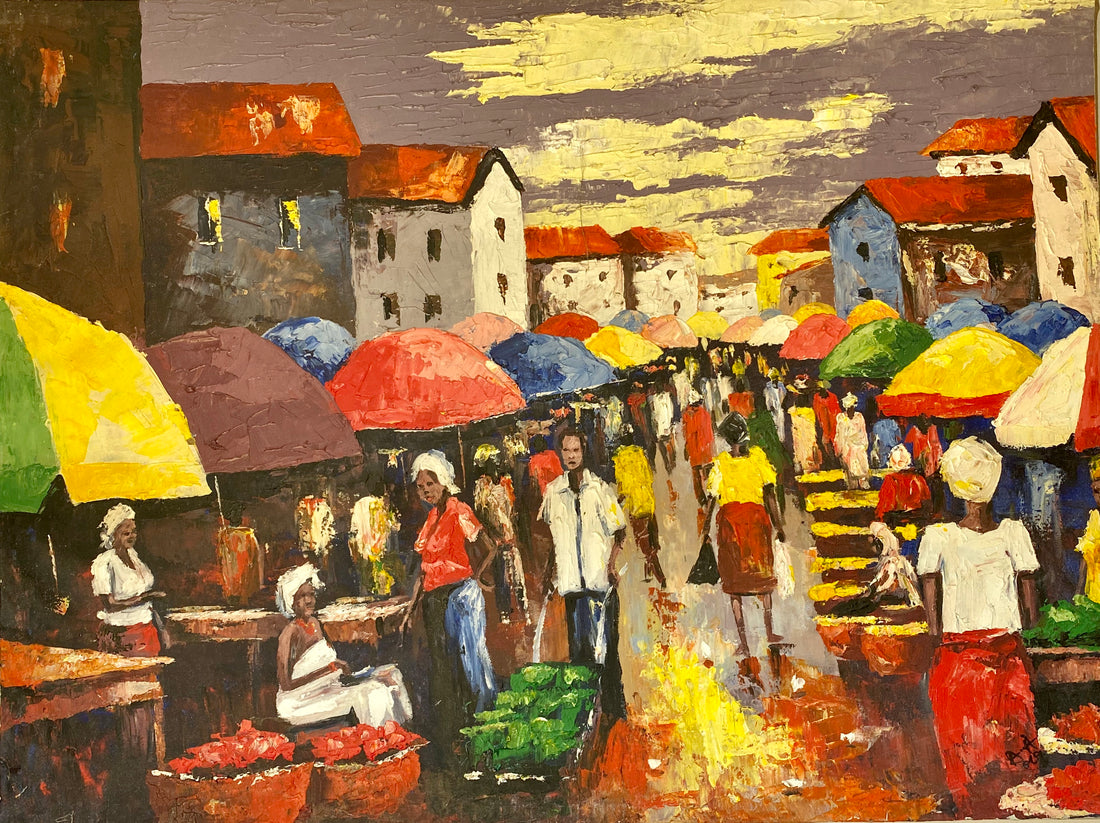
Oyingbo Market
Share
Oja Oyingbo ko mo p’enikan o wa (Oyingbo Market does not recognize the absence of anyone)
This still-life depicts the Oyingbo Market, one of the oldest and most bustling markets in Lagos, Nigeria. Lagos is the most populous city in Nigeria (and one of the most populous on the continent) and accounting for a third of the country's GDP (2017 estimates); a thriving commercial and trading city. Large open-air markets dot the cityscape, many of which are cultural landmarks.
Oyingbo market is said to be established by the Awori (an ancient sub-group of the Yoruba peoples) as a depot for agricultural produce and craft from across the sub-region. The market was then held every four days and served the inhabitants of the sparsely clustered hamlets (village communities) which spread on the littoral of Lagos.
The word “Oyingbo” is a derivation of the Yoruba phrase “Eyin Gbo” which itself is a contracted form of “Eyin Gbongbo”. “Eyin” means “behind” while “Gbongbo” means “huge tree root”. It was claimed that there was a big tree with enormous roots and it was behind the tree that trading activities were carried out.
Today, Oyingbo Market has evolved into a sprawling four storey building with hundreds of open air stalls, over 102 lockup shops, a large parking lot with space for 150 cars. It is a sustainable source of income for thousands of traders (many of them women) and thousands more come daily to shop for produce as well as a myriad of other items.
Source: Biodun Onayele https://businessday.ng/analysis/article/lagos-evolution-oyingbo-market/
Watch: https://youtu.be/4kiRMC1OQMM